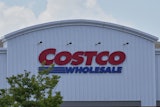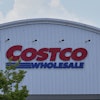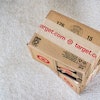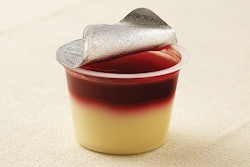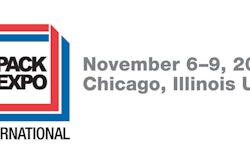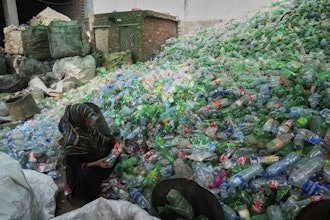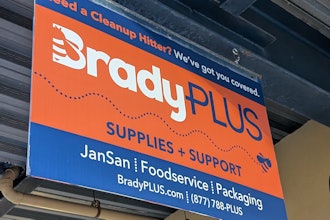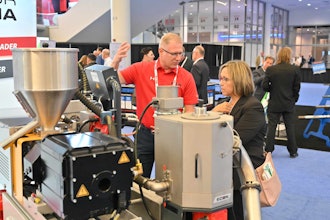
 Shagha Tousi, Partner, Nutter McClennen & Fish LLP
Shagha Tousi, Partner, Nutter McClennen & Fish LLPProduct packaging litigation is a growing concern in the food and beverage industry, as companies face the possibility of multiple sources of litigation based on their product packaging and labeling.
Shagha Tousi, a partner in Nutter’s Litigation Department and a member of the firm’s Business Litigation and Product Liability and Toxic Tort Litigation practice groups, explores how manufacturers can avoid being subject to a regulatory action or class action litigation on the basis of their product labeling in the Q&A below.
Q: How can product packaging trigger litigation for food and beverage companies?
Shagha Tousi: Food and beverage companies face the possibility of two sources of litigation based on their product packaging and labeling: regulators and plaintiffs’ lawyers. With respect to regulatory action, the Food and Drug Administration (FDA) and the Federal Trade Commission (FTC) share overlapping jurisdiction on the labeling of food and beverage products. While FDA enforces regulations on the content of product labeling, FTC enforces instances of allegedly false and deceptive advertising. FDA’s primary enforcement tactic is to send a Warning Letter which services as official notice to the company. From there, FDA can seek remedies including injunctions, recalls, seizures, civil penalties and criminal prosecutions. Similarly, FTC can bring claims for false advertising against the company.
Perhaps more ominous than the threat of regulatory action is that of a consumer class action by the plaintiffs’ bar. These claims can vary from product liability claims alleging physical harm to false or misleading advertising claims. Even if the company is in full compliance with FDA and FTC regulations, plaintiffs’ lawyers can pick apart the packaging and advertising for any particular product, identify a single lead plaintiff who allegedly was misled into buying the product and initiate costly and protracted litigation which the company will either have to settle or commit resources to fight.
Q: What types of packaging do plaintiffs’ lawyers often focus on?
ST: Plaintiffs’ lawyers tend to harp on areas where FDA has spoken negatively (e.g., the term “evaporated cane juice”) or hasn’t defined a term. One example is the term “natural,” which FDA has not yet regulated, resulting in active litigation by plaintiffs’ lawyers around labels using terms like “natural” or “all natural.”
Q: Should manufacturers be worried only about what is on their nutrition label or physical product packaging?
ST: No. While many FDA regulations apply specifically to the product’s nutrition label, the remainder of the product’s physical packaging as well as all of the company websites, television ads, social media platforms and other materials touting the product are subjected to regulatory and litigation scrutiny. Even an action as simple as “re-tweeting” another’s praise of the product can be deemed to have been adopted by the company.
Q: How can a company avoid being subject to a regulatory action or class action litigation on the basis of their product labeling?
ST: A concerned food and beverage company should ensure to be in compliance with all FDA regulations, including by obtaining all appropriate certifications from their suppliers.
Companies should avoid making claims that go beyond scientifically proven attributes of their products or ignore data going in the opposite direction. Definitive statements such as “proven to improve health” and “proven to cause weight loss,” as well as undefined terms like “pure” and “wholesome” can be traps. Manufacturers should consult with a food and beverage products liability lawyer to determine if their marketing claims leave them vulnerable.
Q: Could you describe any notable recent cases and settlements?
ST: There have been a number of notable settlements in this area. Particularly for products with considerable markets, settlements of class action cases in this area can become quite costly. That does not take into consideration the cost of defending these cases, which by itself is not an insignificant cost. The following are several examples:
- Dannon’s $45 million settlement in 2010 of allegations that its claims as to the digestive benefits of Activia probiotic yogurt were false and misleading;
- PepsiCo’s $9 million settlement over claims that Naked Juice products were deceptively labeled as “all natural” and “non-GMO”;
- Kashi’s $4 million settlement in 2015 over claims that its products were mislabeled as “all natural” and containing “nothing artificial” despite containing GMO products; and
- Kellogg’s $4 million settlement of allegations that its claims that Frosted Mini-Wheats cereal improved kids’ attentiveness, memory, and other cognitive functions were not supported by competent clinical evidence.
Q: What are the upcoming developments that companies in this area should keep an eye on?
ST: First, I would recommend everyone keep an eye on the regulatory scheme surrounding GMO food products. Earlier this year, President Obama signed into law a bill which puts in place the framework for the development of a national standard for the labeling of GMO food products. While the legislation contains two express preemption provisions, effectively prohibiting states from establishing their own labeling requirements around GMO products, it is clear that new labeling requirements will be imposed on food and beverage companies in the coming years. Furthermore, it remains to be seen whether courts will apply the same principles of preemption here to limit state law claims as they have in other areas. See e.g., Brod v. Sioux Honey Ass’n Cooperative, 609 F. App’x 415 (9th Cir. 2015).
Second, FDA has requested comments on the use of the term “Natural” on food labeling. While the comment period on this topic closed in May 2016, food and beverage companies, especially those who tout their products as “all natural” (or any derivation of that term) should stay tuned to see how FDA proceeds.
Shagha Tousi is a partner in Nutter’s Litigation Department and a member of the firm’s Business Litigation and Product Liability and Toxic Tort Litigation practice groups. Clients rely on Shagha’s counsel to deal with disputes arising with their organization’s product marketing initiatives, sales force, and competitors. She advises food and beverage companies, clients in the life sciences industry, and other organizations relying on large sales networks as a core component of their business.
